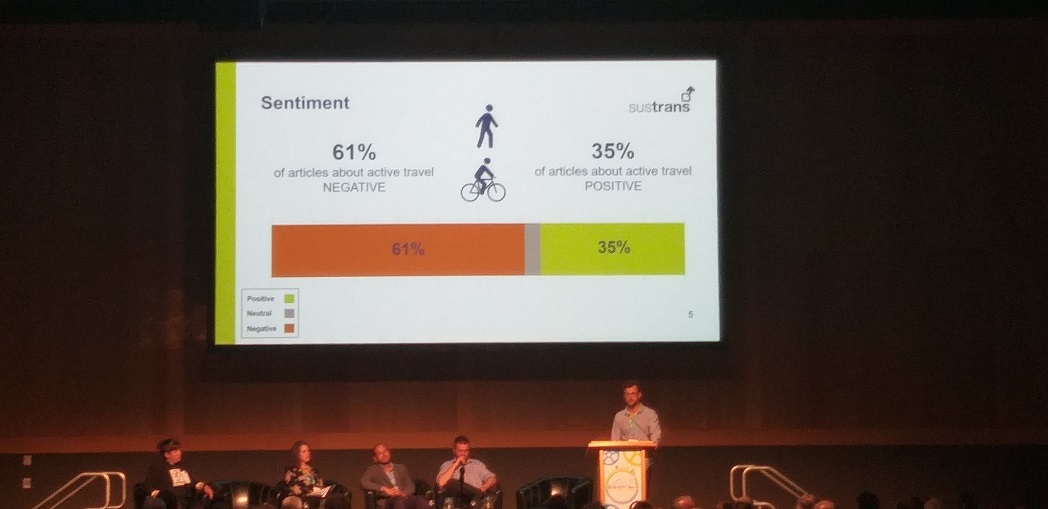
Media, Friend or Foe? – How Can We Change the Media Discourse on Cycling?
Victim-blaming, object-based portrayals and the imbalance of representation were highlighted as the main problems of cycling representation in the Media. On the other hand, with only a few tools and a successful marketing strategy, (social) media can be used to promote the benefits of cycling and encourage people to cycle more often.
Dr. Tara Goddard, Assistant Professor of Urban Planning, Texas A&M, presented her research which revealed that local news coverage, subtly, but consistently blamed vulnerable road users for accidents. Moreover, she raised concerns about the language used to characterize victims in comparison to culprits. While the “driver” is usually dehumanized and substituted with the word “car”, cyclists and pedestrians are mainly referred to as a “person walking or biking”, with their name and a few personal details given. Consequently, it removes the driver from any involvement in the accidents.
"Is cycling presented as a positive or negative thing?", asked Will Wright (Sustrans) speaking about his research on the representation of cycling in the British Media. His investigations showed that over 600 articles revealed significant social imbalances. For example, his survey exposed that only 35% of articles written on cycling are positive. Generally speaking, the typical cyclists is portrayed as a white, male lawbreaker. “It also highlights the lack of diversity within media presentation of active travel, particularly cycling, with large gender, age and ethnicity imbalances”, says Wright. This will, in turn, create far-reaching, negative consequences as it would unlikely encourage a broad variety of people to cycle.
Denise Silveira, press relations documentarist Ciclovia Musical, enlightened the audience with a case study from Brazil. Unfortunately, most Brazilian cycling headlines are based on police reports, reading “Pilgrim falls and dies on the road”. Her main concern was that this will send out the message that cycling is dangerous and potentially has fatal consequences. With Ciclocia Musical she now wants to help change this discourse by holding concerts for cyclists. It will take participants on a cycling trip to different areas with stops along the way to enjoy chamber-music.
Lastly, the session was rounded off by Joao Camolas, Senior Advisor for Urban Cycling Strategies and Communication Strategy for the Municipality of Lisbon. He shared a success story about how the Lisbon Municipality created a vast community through social media with only nine short videos, which demystified excuses for not cycling.
Contact the author
Recent news!
Upcoming events
Contact Us
Avenue des Arts, 7-8
Postal address: Rue de la Charité, 22
1210 Brussels, Belgium









